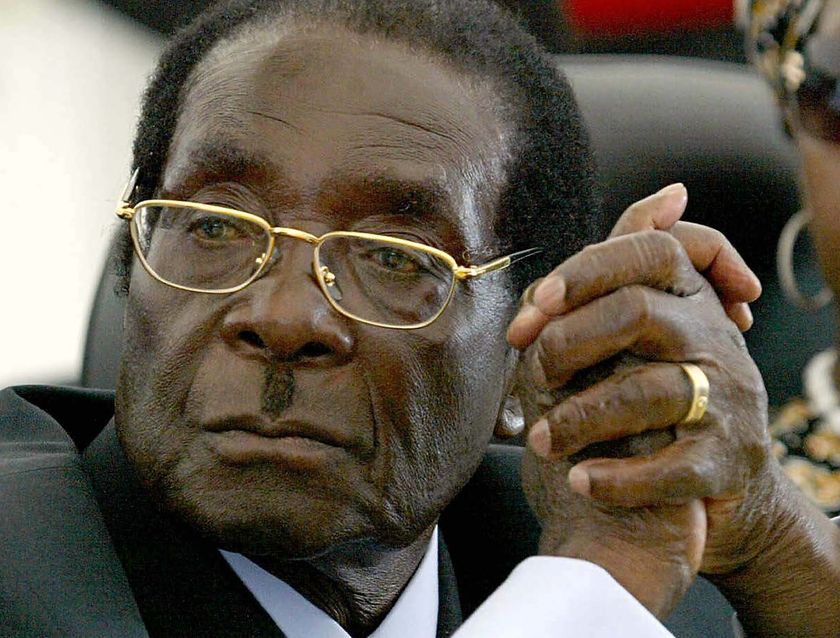

Ambitions play a catalytic role in the developmental gradient of humans. In Zimbabwean politics expressing political ambitions is sometimes an anathema. Ruling and opposition parties seem to forbid members who are not incumbent presidents from overtly nursing dreams of becoming party or state presidents.
By Masola wa Dabudabu
Members who express ambitions to become president are treated as lepers and get quarantined in political exile. Zanu PF in particular has a low tolerance towards aspirants to Mugabe’s presidency. Anyone who does so is deemed to have committed a thought crime.
Declaring presidential aspirations begets vilification and humiliation for being agents of neo-colonialism. The political playfield is richly endowed with names of those who earned the unenviable quisling label for expressing legitimate ambitions to Zimbabwe’s ultimate post.
During the 1980s the murderous hounds of Gukurahundi ferociously hunted and haunted Joshua Nkomo. Mugabe believed that Nkomo had means and motives to topple him. According to Mugabe, Nkomo had a life-long desire to assume the presidency. His assumed title of “Father Zimbabwe” did not make the situation any better. Mugabe viewed the title as a way of undermining his authority and that it was Nkomo’s statement of intent. Mugabe added zero and zero to conclude that one cannot be “Father Zimbabwe” without the presidency.
Mugabe set on destroying Nkomo’s “toxic” ambition. After neutralising Zapu, Mugabe went on to make sure that his position within the party was secure. He stifled succession debate. The opposition that came after Zapu was chaotic. Tekere’s Zimbabwe Unity Movement and Dumbutshena’s Forum Party gave Mugabe the leg-room to further consolidate his position in Zanu PF whilst his not-so-secure subordinates busied themselves lampooning the over-rated opposition.
The new global political climate due to Soviet leader Mikhail Gorbachev’s perestroika and glasnost did not put Mugabe’s leadership at risk. It was only when a much more formidable opposition in the form of the MDC made waves in 2000 that Mugabe requested his lieutenants to harden up for a battle that could determine their political future. From 2000 to 2013 the MDC kept principals in Zanu PF busy fighting for their political survival.
In elections held between 2000 and 2013, those who fell by the wayside, including Vice-President Emmerson Mnangagwa, had to rely on Mugabe for political survival. During the violent 2008 vote, the ageing Mugabe came second in the presidential poll, but people like Mnangagwa made sure he wriggled his way to State House with his ego severely bruised.
- Chamisa under fire over US$120K donation
- Mavhunga puts DeMbare into Chibuku quarterfinals
- Pension funds bet on Cabora Bassa oilfields
- Councils defy govt fire tender directive
Keep Reading
The 2008 performance killed off any overt expressions of presidential ambitions from Zanu PF bigwigs. The presidency was no longer guaranteed. Once again Mugabe found comfort in the confusion and he began to stamp total and uncontested authority over the party.
None of Mugabe’s deputies were confident about the outcome of the 2013 general elections hence the sacrificial parading of Mugabe as a trump card. By hook or crook Zanu PF swept everything on offer and once more everyone in Zanu PF rediscovered lost confidence and arrogance.
Mugabe’s age, physical health and mental capacity became talking points. Those closer to the throne started warming up to the prospects of landing the top job. The vultures started flapping their wings around the limping beast in readiness for a feeding frenzy.
Two clearly defined factions came to being as the prospects of Mugabe’s retirement or otherwise loomed. Each faction functioned as if it was protecting Mugabe’s position from the onslaught of the other. It took Grace Mugabe to obliterate one of the factions. Although Mnangagwa came up tops, he cannot express his ambition to be the next president lest he steps on his benefactor’s shrivelled toes. The fear is universal!
Jonathan Moyo articulated this fear during his recent interview on BBC’s HARDTalk with Stephen Sackur. When the interviewer alluded to Mnangagwa being the chosen successor, Moyo reacted as if he had seen a ghost. His reaction confirmed the known; that any discussion on succession is taboo. Moyo’s denial about Mnangagwa’s position was in keeping with Mugabe’s hatred of the subject. Moyo had to protect his Dinyane ally from Mugabe’s wrath.
Either Moyo has a strong hunch or has inside information that Mugabe is preparing a member of his family for the job. If it be the case the Mnangagwas have to be seen playing along in watchful wait.
If Mugabe did not have any ulterior motives about his succession by now he should have relaxed his moratorium on discussing the issue. Until Mugabe decides that his deputies can talk about it, Mnangagwa and his associates will continue behaving as though they have reached self-actualisation.
It is sad that a vice-president cannot state his or her ambition to be president. Ask kids about their ambitions and they will never mention wanting to be deputy headmasters or vice-presidents, they go for the real deal. Zanu PF people have to pretend that they have no ambition to become the next president perhaps because it is the only safe way to placate Mr Mugabe.
This is how Mugabe has either silenced men and women who would normally stand up for themselves into docility. Such is the horrific nature of stifling people’s ambitions.










